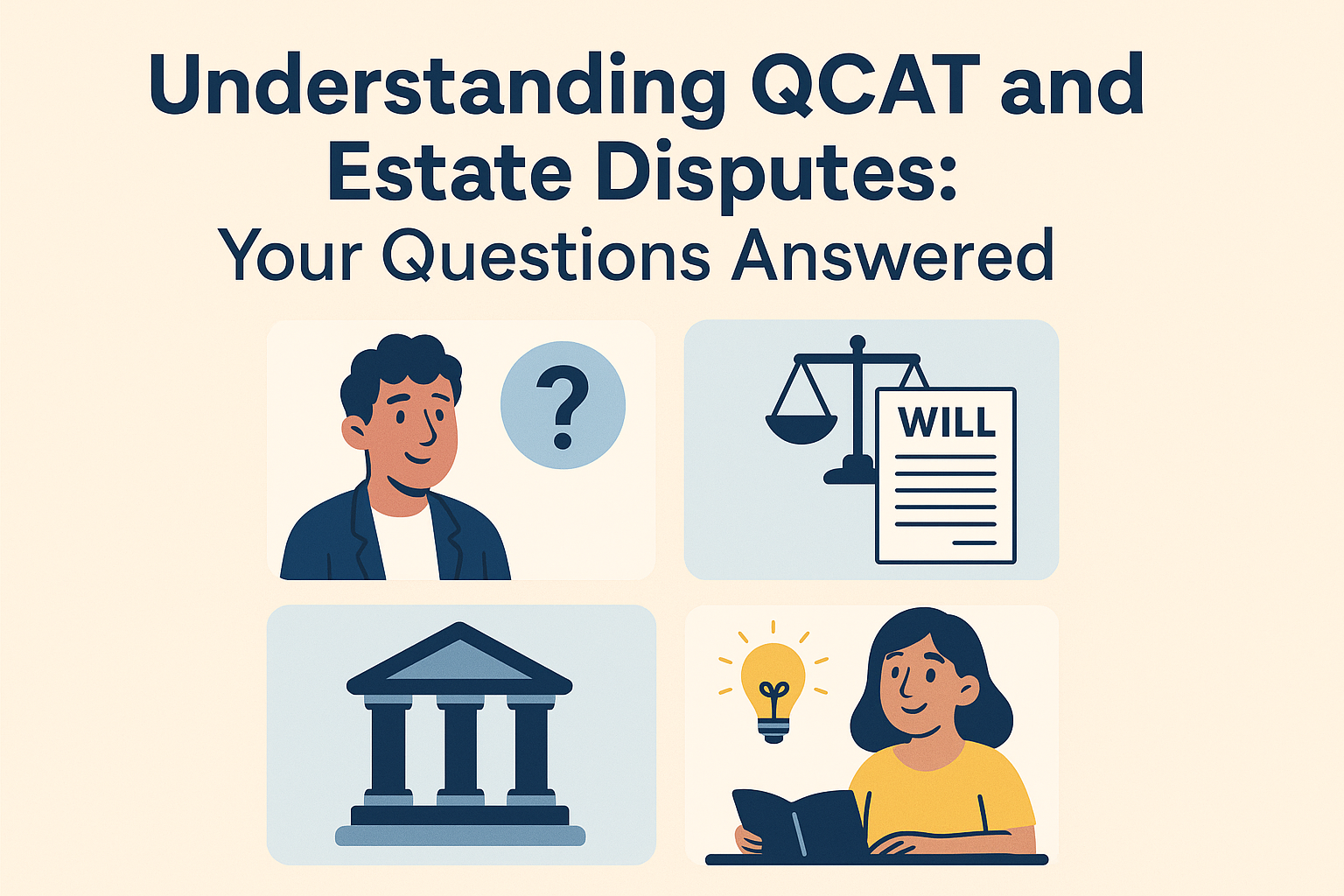Congratulations to Kylie Shaw on 20 years in law! A fantastic milestone 👏👏 #RMOLaw #TeamRMO #20YearsInLaw #WillsAndEstates #EstatePlanning #Probate #LegalProfession #QLDLawyers #LegalMilestone
News
Other News
Understanding QCAT and Estate Disputes: Your Questions Answered

Estate disputes can be emotionally demanding and legally complex. The Queensland Civil and Administrative Tribunal (QCAT) provides a forum for resolving disputes quickly and inexpensively. Below, we answer some common questions about QCAT’s role in estate disputes and how RMO Law can help guide you through the process.
What is QCAT?
QCAT (Queensland Civil and Administrative Tribunal) is an independent body that makes decisions on a wide range of matters, including guardianship, administration, and other civil disputes. Its goal is to resolve issues fairly, quickly, and inexpensively.
Does QCAT handle estate disputes?
QCAT does not handle Will contests or disputes over the distribution of an estate – that is typically dealt with in the Supreme Court of Queensland. However, QCAT does handle related matters, including:
- Appointing administrators or guardians for individuals with impaired decision-making capacity.
- Reviewing and changing existing guardianship or administration orders.
- Making decisions regarding enduring powers of attorney (EPOAs).
These types of decisions can significantly impact the administration of an estate, especially if disputes arise over who should manage the affairs of someone who is incapacitated.
Can a lawyer represent me in a QCAT proceeding?
The short answer is no.
Generally, QCAT is designed to be accessible, and individuals must represent themselves. Representation by a lawyer is not automatically allowed – you must first seek permission from QCAT if you wish to have a solicitor appear for you.
How can RMO Law help if lawyers can’t appear by default?
At RMO Law, we understand the rules and limitations around legal representation in QCAT. While we may not always appear in the tribunal on your behalf, we can still support you behind the scenes by:
- Helping you prepare your documents and submissions.
- Advising you on what to expect during hearings or mediations.
- Guiding you through the procedural steps to ensure your application is as strong as possible.
- Assisting you with requests for representation, where appropriate.
Think of us as your strategic partner – we help you present your case clearly, confidently, and in a way that aligns with QCAT’s expectations.
Do I need a lawyer to navigate QCAT?
Not necessarily, but it helps to have experienced guidance. The process may seem informal compared to a court, but the outcomes can have long-term implications, especially when it comes to decisions about a loved one’s estate or future care.
Having knowledgeable support from a team like RMO Law can give you peace of mind and increase your chances of a smooth process.
Why choose RMO Law?
At RMO Law, we specialise in estate matters and understand how personal and delicate these issues can be. Our team offers:
- Compassionate, practical support.
- Deep knowledge of QCAT procedures and estate law.
- Transparent communication at every step.
We’re here to empower you with the tools and knowledge you need to navigate QCAT confidently – even if we’re not standing beside you in the hearing room.
Ready to take the next step?
If you’re dealing with an elder abuse issue, a capacity issue or an estate-related issue involving QCAT, get in touch with us on 1800 957 936 today. We will help you determine the best course of action and provide the guidance you need every step of the way.
This article is for your information and interest only. It is not intended to be comprehensive, and it does not constitute and must not be relied on as legal advice. You must seek specific advice tailored to your circumstances.
Written by Haseema Sayed / Authorised by Roly O’Regan
Get in Touch

